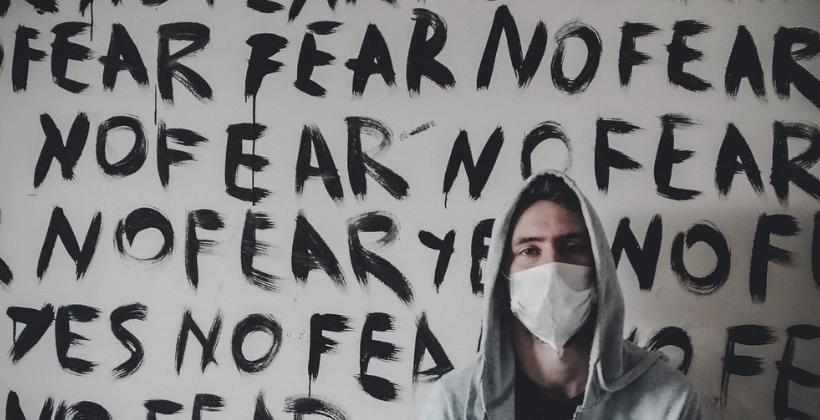Illness anxiety disorder, sometimes called hypochondriasis or health anxiety, is worrying excessively that you are or may become seriously ill. You may have no physical symptoms. Or you may believe that normal body sensations or minor symptoms are signs of severe illness, even though a thorough medical exam doesn’t reveal a serious medical condition.
You may experience extreme anxiety that body sensations, such as muscle twitching or fatigue, are associated with a specific, serious illness. This excessive anxiety — rather than the physical symptom itself — results in severe distress that can disrupt your life.
Illness anxiety disorder is a long-term condition that can fluctuate in severity. It may increase with age or during times of stress. But psychological counseling (psychotherapy) and sometimes medication can help ease your worries.
What is Hypochondria?
Hypochondria is a mental health disorder. It usually starts in early adulthood and may show up after the person or someone they know has gone through an illness or after they’ve lost someone to a serious medical condition. About two-thirds of hypochondriacs have a co-existing psychiatric disorder, such as panic disorder, obsessive-compulsive disorder (OCD), or major depression. Hypochondria symptoms can vary, depending on factors such as stress, age, and whether the person is already an extreme worrier.
Symptoms:
Hypochondriac symptoms may include
- Regularly checking themselves for any sign of illness
- Fearing that anything from a runny nose to a gurgle in their gut is the sign of a serious illness
- Making frequent visits to their doctor
- Conversely, avoiding the doctor due to fear that the doctor will find they have a dreaded disease or serious illness
- Talking excessively about their health
- Spending a lot of time online, researching their symptoms
- May focus on just one thing: a certain disease (example: cancer) or a certain body part (example: the lungs if they cough). Or, they may fear any disease or might become focused on a trending disease (example: during flu season, they may be convinced that a sniffle means they’re coming down with the flu)
- Are unconvinced that their negative medical tests are correct, then worry that they have something undiagnosed and that no one will be able to find it and cure them
- Avoiding people or places they fear may cause them to get sick
Health anxiety can actually have its own symptoms because it’s possible for the person to have stomachaches, dizziness, or pain as a result of their overwhelming anxiety. In fact, illness anxiety can take over a hypochondriac’s life to the point that worrying and living in fear are so stressful, the person can become debilitated.
You may be wondering what triggers hypochondria. Although there really isn’t an exact cause, we do know that people with illness anxiety are more likely to have a family member who is also a hypochondriac. The person with health anxiety may have gone through a serious illness and fear that their bad experience may be repeated. They may be going through major life stress or have had a serious illness during childhood. Or, they may already be suffering from a mental health condition and their hypochondria may be part of it.
Causes
Beliefs. You may have a difficult time tolerating uncertainty over uncomfortable or unusual body sensations. This could lead you to misinterpret that all body sensations are serious, so you search for evidence to confirm that you have a serious disease.
Family. You may be more likely to have health anxiety if you had parents who worried too much about their own health or your health.
Past experience. You may have had experience with serious illness in childhood, so physical sensations may be frightening to you.
Professional treatments for hypochondria include:
The goal of treatment is to help you manage anxiety about your health and improve your ability to function in daily life. Psychotherapy — also called talk therapy — is the main source of treatment that can help with illness anxiety disorder. Sometimes medications may be added.
Psychotherapy
Because physical sensations can be related to emotional distress and health anxiety, psychotherapy — particularly cognitive-behavioral therapy (CBT) and psychodynamic approach — can be an effective treatment. CBT helps you learn skills to manage illness anxiety disorder and find different ways to manage your worries other than excessive medical testing or avoidance of medical care, whereas the psychodynamic approach helps you find the root of your disorder.
Therapy can help you:
- Identify your fears and beliefs about having a serious medical disease
- Learn alternate ways to view your body sensations by working to change unhelpful thoughts
- Become more aware of how your worries affect you and your behavior
- Change the way you respond to your body sensations and symptoms
- Learn skills to cope with and tolerate anxiety and stress
- Reduce avoidance of situations and activities due to physical sensations
- Reduce behaviors of frequently checking your body for signs of illness and repeatedly seeking reassurance
- Improve daily functioning at home, at work, in relationships and in social situations
- Address other mental health disorders, such as depression
- Other therapies such as behavioral stress management and exposure therapyalso may be helpful.
Medications
Antidepressants, such as selective serotonin reuptake inhibitors (SSRIs), may help treat illness anxiety disorder. Medications to treat mood or anxiety disorders, if present, also may help.
Talk to your doctor about medication options and the possible side effects and risks.
At Horizon Mental Health Clinic, we can help you understand, manage and heal yourself from Health Anxiety.
You can call us on 0870569728 or email us on horizonmentalhealthclinic@gmail.com


